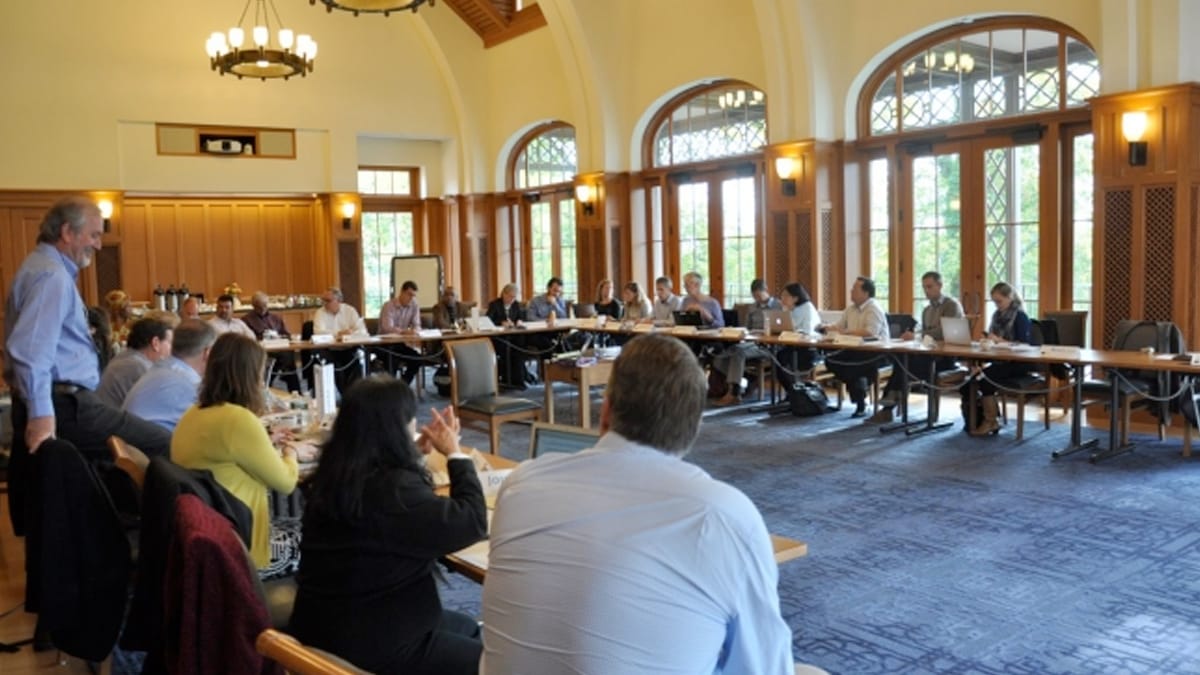Scoping Dialogue on Understanding Deforestation-Free (UDF)

There has been a groundswell of private and public-sector initiatives aiming to reduce or eliminate deforestation from supply chains, investments, and jurisdictional boundaries. Given the rapid pace at which commitments have been made and implementation tools have been developed, there has been little opportunity to take stock of ‘deforestation-free,’ either as a concept or as a mechanism for combating deforestation. This dialogue was developed to provide a neutral, stakeholder-driven platform for leaders from different sectors to meaningfully explore the many challenges and opportunities that the varied deforestation-free initiatives present.
Utilizing a multi-stakeholder dialogue format, together we:
- Deliberated on what exactly is meant by deforestation-free;
- Identified and elaborated risks and opportunities associated with uptake of the deforestation-free concept;
- Debated potential safeguards and solutions to address risks; and
- Determined specific and practical ways forward on key issues, appropriate for stakeholders involved in the dialogue.
Key issues discussed included:
- Are deforestation-free commitments a good idea to begin with?
- How can local rights and livelihoods be protected in the face of these top-down commitments?
- What counts as a ‘forest’ when verifying progress toward meeting deforestation-free commitments?
- How should deforestation-free commitments be monitored and verified?
Dialogue participants identified a number of critical questions, which will need to be addressed in future dialogues. A selection of these (drawn from the full list in the linked documents below) includes:
- Which approach is more effective: focusing on reducing deforestation or on rewarding sustainable land management?
- Should policies exclusively focus on deforestation, or would it be more effective to take a broader landscape approach?
- Is it better for deforestation-free policies to take a strict approach and permit no deforestation whatsoever, or to prohibit only “unacceptable” deforestation? If the latter, what sort of deforestation is unacceptable?
- Should, and if so, how can deforestation-free commitments be integrated with other approaches to combat deforestation (e.g., certification, REDD+)?
- How can governmental deforestation-free targets that cover jurisdictions and private sector targets that cover supply chains be reconciled?
- How can stakeholder participation be better included in the formulation of deforestation-free commitments, as well as throughout their implementation?
Participants agreed that several follow up actions will be necessary to advance our collective ability to understand and shape the role that deforestation-free policies will play in combating deforestation. Some of these include:
- A document that lays out what ‘deforestation-free’ means to different stakeholders, ranging from communities and national governments to retail companies and end consumers;
- An assessment of the landscape of actors engaged in the deforestation-free agenda;
- An analysis of existing data on deforestation so that it can be brought to bear on continued dialogues around deforestation-free commitments;
- An assessment of the tools that are currently available for addressing deforestation;
- Case studies on the positive contributions and limitations of existing policy instruments for reducing deforestation;
- Principles of deforestation-free commitments and guidelines for developing and implementing commitments; and
- Partnering with ongoing initiatives that are working to understand and implement deforestation-free initiatives.
Co-Chairs’ Summary
Co-Chairs’ Summary: Scoping Dialogue on Understanding Deforestation-Free
